 |
 |
SPEAKERS INFO
|
 |
 |
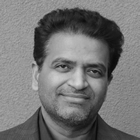 |
Kaustav Banerjee (University of California, USA)
Kaustav Banerjee is one of the world’s leading innovators in the field of nanoelectronics. At present, he is a professor of Electrical and Computer Engineering and director of the Nanoelectronics Research Lab at University of California, Santa Barbara. His current research blends the physics, technology, and applications of quantum engineered van der Waals materials and heterostructures for next-generation energy-efficient electronics. Initially trained as a physicist, he graduated from UC Berkeley with a PhD in electrical engineering (minors in physics and materials science) in 1999. Subsequently, he worked at Stanford University as a Research Associate at the Center for Integrated Systems, with cross-appointments in Electrical Engineering and Mechanical Engineering, and joined the faculty at UCSB in 2002, where he has been a Full Professor since 2007.
|
 |
 |
 |
 |
 |
Francesco Bonaccorso (BeDimensional, Italy)
Francesco Bonaccorso is the Scientific Director of BeDimensional SpA and Visiting Scientist at the Istituto Italiano di Tecnologia. He gained the PhD from the University of Messina after working at the Italian National Research Council, the University of Cambridge and the University of Vanderbilt. In 2009 he was awarded a Royal Society Newton International Fellowship at Cambridge University, and a Fellowship at Hughes Hall, Cambridge, obtaining a MA. He was responsible in defining the ten years scientific and technological roadmap for the Graphene Flagship. He is now Deputy of the Innovation of the Flagship. He was featured as 2016 Emerging Investigator by J.Mater.Chem.A and in 2019 by ChemPlusChem. His research interests encompass both the fundamental understanding and solution processing of novel nanomaterials and their technological applications. He authored/co-authored more than 120 publications and 12 patents.
|
 |
 |
 |
 |
 |
An Chen (Semiconductor Research Corporation, USA)
Dr. An Chen is on assignment from the IBM Corporation to serve as the Executive Director of the Nanoelectronics Research Initiative (NRI) and the nanoelectronic Computing Research (nCORE) programs at the Semiconductor Research Corporation (SRC). An received his Ph.D. degree in Electrical Engineering from Yale University. Prior to IBM, he also worked at Spansion LLC, AMD, and GLOBALFOUNDRIES. An was the Chair of the Emerging Research Device (ERD) group of the International Technology Roadmap for Semiconductors (ITRS).
|
 |
 |
 |
 |
 |
Zhihong Chen (Purdue University, USA)
Zhihong Chen received her B.S. degree in physics from Fudan University in 1998, and her Ph.D. degree in physics from the University of Florida in 2003. After two years of postdoctoral research at IBM T.J. Watson research center, she became a research staff member in the Physical Science Department. Her research focused on design and fabrication of high performance carbon based devices and circuits. In 2008, she was appointed as the manager of the Carbon Technology Group at IBM, where she was in charge of evaluating the potential of carbon materials and the development of novel carbon based technologies for commercial applications. She joined the School of Electrical and Computer Engineering at Purdue University in 2010 as an Associate Professor, and has become a Full Professor since 2017. Her research interests focus on device and circuit designs for beyond-CMOS applications. She has become the Director of the SRC nCORE NEW LIMITS Center since 2018, and Associated Director of Research for Birck Nanotechnology Center in 2019. She is the Technical Program Chair for the 2020 Device Research Conference and General Chair for the 2021 DRC. She also serves as the Workshop Chair for the 2020 IEEE International Interconnect Technology Conference and Program Co-chair for the 2021 IITC.
|
 |
 |
 |
 |
 |
Sonia Conesa Boj (TU Delft, The netherlands)
Prof. Sonia Conesa-Boj obtained her Ph.D. in Nanoscience and Nanotechnology at the University of Barcelona (Spain) in 2011. Afterwards she moved to a postdoctoral research position at EPFL Lausanne, funded by a Marie-Heim Vogtlin personal fellowship awarded by the Swiss National Science Foundation. After a second postdoc in The Netherlands, in 2016 Dr. Conesa-Boj became Assistant Professor at the Department of Quantum Nanoscience and the Kavli Instiuture of Nanoscience at TU Delft, and since 2020 she's tenured Associate Professor there. The focus of her research is developing novel approaches for the growth and characterisation of low-dimensional nanoscale materials, from nanowires to van der Waals layered materials. She has demonstrated how the exploitation of state-of-the-art Transmission Electron Microscopy techniques provide a unique window to unravel the physical properties of novel nanomaterials. Dr. Sonia Conesa-Boj is the author of more than 40 peer-reviewed publications and her research has been supported, among others, by the award of an ERC Starting Grant and a Dutch "Top Kennis en Innovatie" Consortium grant.
|
 |
 |
 |
 |
 |
Bruno Dlubak (CNRS/Thales, France)
Dr. Bruno Dlubak is a tenured researcher at the French National Center of Research (CNRS) since 2014. After obtaining his Ph.D. degree from the Université Paris-Sud working on graphene spintronics, he joined the University of Cambridge, UK, as a Research Associate working on large-scale graphene CVD growth and integration in spin devices. He is now working at the joint Unité Mixte de Physique CNRS-Thales lab in Palaiseau, France, associated to the University Paris-Saclay. His current research interests concern the exploration of novel 2D materials for electronics and spintronics devices, with a focus on spin dependent transport and injection in nanostructures and 2D materials.
|
 |
 |
 |
 |
 |
Aida Ebrahimi (Pennsylvania State University , USA)
Dr. Ebrahimi is an assistant professor of Electrical Engineering and Biomedical Engineering (BME; courtesy). She also serves as a MatSe and BME faculty of the Intercollege Graduate Degree Program (IGDP) at Penn State. Dr. Ebrahimi’s research revolves around developing novel biosensors for point-of-care testing, printable devices, studying electrochemical properties of 2D materials and their sensing application, and in situ study of bacterial phenotypes. Dr. Ebrahimi is a recipient of several awards and scholarships for outstanding research performance, including SPARC Clinical-Research Exchange Fellowship (Penn State, 2020), Scialog Fellow in Microbiome, Neurobiology and Disease (Research Corporation for Science Advancement, 2020), the Materials-Life Science Convergence Award (Penn State, 2018), the Humanitarian Materials Award (Penn State, 2017), Bilsland Dissertation Fellowship Award (Purdue University, 2015), Rising Star in EECS (MIT, 2015), and Meissner Fellowship Award (Purdue University, 2011). Dr. Ebrahimi is a member of the IEEE Electron Device Society (EDS), the IEEE Engineering in Medicine and Biology Society (EMBS), the Electrochemical Society (ECS), the Biomedical Engineering Society (BMES), and the Biophysical Society (BPS).
|
 |
 |
 |
 |
 |
Dmitri Efetov (ICFO, Spain)
Prof. Dmitri K. Efetov (M) received a Diploma (M.Sc.) in Physics from ETH Zurich (Switzerland) in 2007, and a M.A., M. Ph. and a Ph.D. in Physics from Columbia University (USA) in 2014, under supervision of one of the pioneers of graphene Prof. Philip Kim. Prior to joining ICFO in 2017, he had worked as a postdoctoral researcher at the Massachusetts Institute of Technology (MIT, USA). Since 2017 Dmitri is a professor and group leader at ICFO, whose research program concentrates on the development of novel composite materials known as “van der Waals (vdW) hetero-structures”, which consist of graphene and other 2D materials. Dmitri received the Charles H. Towns Award for his outstanding research achievements during his PhD, and the Obra Social ”la Caixa” Junior Leader Fellowship and an ERC starting grant to start his independent research group at ICFO. Prof. Efetov is leader of the 2D-SIPC project in the Quantum Flagship (1B€ project for 10 years), as well as a member of its Science and Engineering board
|
 |
 |
 |
 |
 |
Michael Fuhrer (Monash University, Australia)
Professor Michael Fuhrer is an ARC Laurete Fellow in the School of Physics at Monash University. Michael directs the ARC Centre of Excellence for Future Low-Energy Electronics Technologies (FLEET) and co-directs the Monash Centre for Atromically Thin Materials. Prior to coming to Monash, Michael directed the Center for Nanophysics and Advanced Materials at the University of Maryland. Michael is a Fellow of the American Association for the Advancement of Science and the American Physical Society.
|
 |
 |
 |
 |
 |
Avik Ghosh (University of Virginia, USA)
Avik Ghosh is Professor of Electrical and Computer Engineering and Professor of Physics at the University of Virginia. He has over 100 refereed papers and book chapters and 2 upcoming books in the areas of computational nano-electronics and low power devices, specializing in materials to systems modeling (DFT2SPICE), including 2D materials, thin films for photodetectors, molecular electronics, subthermal switching, nanomagnetic materials and devices, and nanoscale heat flow. Ghosh did his PhD in physics from the Ohio State University and Postdoctoral Fellowship in Electrical Engineering at Purdue University. He is a Fellow of the Institute of Physics (IOP), senior member of the IEEE, and has received the IBM Faculty Award, the NSF CAREER Award, a best paper award from the Army Research Office, the Charles Brown New Faculty Teaching Award and the All University Teaching Award. His group's collaborative research with Columbia University on observing negative index behavior in graphene was voted by Physics World as one of the top-10 breakthroughs of 2016.
|
 |
 |
 |
 |
 |
Gordon Harling (CMC Microsystems, Canada)
Gordon Harling received a Bachelor’s degree in Applied Science from the University of Toronto and a Maîtrise en Ingénierie Physique from Polytechnique Montréal. He has worked in Research and Development at large companies such as Mitel, NovAtel, and DALSA. He has been a founder and CEO of several start-up companies including Goal Semiconductor, Elliptic Technologies, and Innotime Technologies.
He joined CMC Microsystems in February 2018 as President and CEO.
|
 |
 |
 |
 |
 |
Ado Jorio (Universidade Federal de Minas Gerais, Brazil)
Full Professor at the Physics Department and Member of the Brazilian Academy of Sciences. PhD from the UFMG, Postdoctoral fellow at Massachusetts Institute of Technology - MIT / USA, Director of Technology and Information in INMETRO, and Visiting Professor at ETH Zurich. Coordinator of the Brazilian Network for Research and Instrumentation in Optical Nanospectroscopy and considered one of "The World’s Most Influential Scientific Minds", according to the Thomson Reuters
|
 |
 |
 |
 |
 |
Richard Kaner (UCLA, USA)
Richard Kaner received his PhD in inorganic chemistry from the University of Pennsylvania in 1984. After carrying out postdoctoral research at the University of California, Berkeley, he joined the University of California, Los Angeles (UCLA), in 1987 as an Assistant Professor. He was promoted to Associate Professor with tenure in 1991 and became a Full Professor in 1993. Professor Kaner has received numerous awards for his work on refractory materials, including new synthetic routes to ceramics, intercalation compounds, superhard materials, graphene, and conducting polymers.
Professor Kaner holds a joint appointment in the Department of Chemistry & Biochemistry as well as in the Department of Materials Science & Engineering.
|
 |
 |
 |
 |
 |
Philip Kim (Harvard University, USA)
Professor Philip Kim was born in Seoul, Korea in 1967. He received his B.S in physics at Seoul National University in 1990 and received his Ph. D. in Applied Physics from Harvard University in 1999. He was Miller Postdoctoral Fellow in Physics from University of California, Berkeley during 1999-2001. In 2002, he joined in Department of Physics at Columbia University as a faculty member, where he is now Professor of Physics. Starting from summer of 2014, he moves to Harvard as Professor of Physics. Professor Kim is a world leading scientist in the area of materials research. His research area is experimental condensed matter physics with an emphasis on physical properties and applications of nanoscale low-dimensional materials. The focus of Prof. Kim’s group research is the mesoscopic investigation of transport phenomena, particularly, electric, thermal and thermoelectrical properties of low dimensional nanoscale materials. These materials include carbon nanotubes, organic and inorganic nanowires, 2-dimensional mesoscopic single crystals, and single organic molecules. The use of modern state-of-the-art semiconductor device fabrication techniques and the development of new methods of material synthesis/manipulation are essential parts of this research. He has initiated these efforts very successfully, and is continuously making innovations in microscopic experimental tools and methods in order to investigate the electric, thermal/thermoelectric transport properties of the nanoscale materials. Professor Kim published more than 120 papers in professional journals which are well cited. Many of his papers are published in high impact journals such as Nature, Science and Physical Review Letters. Professor Kim received numerous honors and award including Oliver E. Buckley Prize (2014), Loeb Lectureship, Harvard (2012); Dresden Barkhausen Award (2011); Yunker Lectureship, Oregon State University, (2011); Chapman Lectureship, Rice University, (2009); IBM Faculty Award (2009); Ho-Am Science Prize (2008); American Physical Society Fellow (2007); Columbia University Distinguished Faculty Award (2007); Recipient Scientific American 50 (2006); National Science Foundation Faculty Career Award (2004). In addition, He has given more than 300 invited presentations as keynote speaker, plenary speakers, and invited speakers in international and domestic conferences, colloquiums and department seminars.
|
 |
 |
 |
 |
 |
Mario Lanza (KAUST, Saudi Arabia)
Mario Lanza is an Associate Professor of Materials Science and Engineering at the King Abdullah University of Science and Technology (KAUST), in Saudi Arabia. He has has published over 120 research papers (including Science, Nature Electronics) and registered four patents, one of them granted with 5.6 Million CNY. He has received the 2017 Young Investigator Award from Microelectronic Engineering (Elsevier), the 2015 Young 1000 Talent award, and in 2019 he was appointed as Distinguished Lecturer of the IEEE - Electron Devices Society (EDS). Prof. Lanza is Associate Editor of Scientific Reports (Nature) and Microelectronic Engineering (Elsevier), and he serves in the board Advanced Electronic Materials (Wiley-VCH), Nanotechnology and Nano Futures (IOP). He has served in the technical committees of several world-class international conferences, like IEEE-IEDM
|
 |
 |
 |
 |
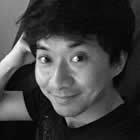 |
Jia Li (Brown University, USA)
Professor Jia Leo Li is a condensed matter experimental physicist specializing in low dimensional electronic systems. His research focuses on emergent quantum phenomena in 2D materials and its van der Waals structures. He received his PhD in physics from Northwestern University and was a post doctoral researcher at Columbia University. He joined the Department of Physics at Brown University in January 2019.
|
 |
 |
 |
 |
 |
Jun Lou (Rice University, USA)
Jun Lou obtained B.E. and M.S. degrees in Materials Science and Engineering from Tsinghua University and Ohio State University, respectively, and his Ph.D. degree from the Department of Mechanical and Aerospace Engineering and Princeton Materials Institute at Princeton University. After a brief postdoc at Brown University he joined Rice University, and directs the Nanomaterials, Nanomechanics and Nanodevices Lab (N3L). He is currently a full professor and the associate chair of the Department of Materials Science and NanoEngineering. Lou was an AFOSR Young Investigator and a recipient of Charles Duncan Award for Outstanding Academic Achievement at Rice. He is the Editor-in-Chief of Materials Today, the Elsevier flagship journal covering original research and reviews in the broader materials science community. He currently serves as the site director for the NSF industry university collaborative research center (IUCRC) of Atomically Thin Multifunctional Coatings (ATOMIC) that has 12 member companies, exploring potential applications of 2D materials in different industries with commercial partners.
|
 |
 |
 |
 |
 |
Adina Luican-Mayer (University of Ottawa, Canada)
Adina Luican-Mayer is an assistant professor in the Physics Department at the University of Ottawa since 2016. She received her undergraduate degree from Jacobs University Bremen in Germany (2006) and her PhD in Physics from Rutgers University (2012). Prior to joining uOttawa, she was the Alexei Abrikosov postdoctoral fellow at the Center for Nanoscale Materials at Argonne National Laboratory. Her research group focuses on uncovering the novel electronic properties of low-dimensional systems custom made by stacking atomically thin sheets of van der Waals materials using scanning probe microscopy and supporting spectroscopic techniques.
|
 |
 |
 |
 |
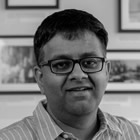 |
Abhay Pasupathy (Columbia University, USA)
Prof. Abhay Pasupathy works in experimental condensed matter physics at Columbia University (USA). His group uses scanned probe microscopes (scanning tunneling and atomic force), nanofabrication and electron transport measurements to get atomic-resolution structural and electronic information on quantum materials. Current projects include studies of graphene and related two-dimensional materials, unconventional superconductors, charge and spin ordered materials.
|
 |
 |
 |
 |
 |
Joan Marie Redwing (The Pennsylvania State University, USA)
Joan Redwing received her B.S. degree in Chemical Engineering from the University of Pittsburgh in 1986. She was as an associate staff member at General Electric Corporate Research & Development in Niskayuna, NY from 1986-1988 where she worked on the development of tungsten coated x-ray targets using chemical vapor deposition (CVD) processing. She then went to the University of Wisconsin-Madison for graduate school and received her Ph.D. in Chemical Engineering in 1994 under the direction of Prof. Thomas Kuech. Her Ph.D. thesis work focused on studying mechanisms of dopant incorporation in GaAs and AlGaAs grown by metalorganic CVD (MOCVD).
After receiving her Ph.D., Joan took a position as a research engineer with Advanced Technology Materials Inc. (ATMI) in Danbury, CT. At ATMI, she developed processes for group III-nitride epitaxy by MOCVD in a group managed by Dr. Michael Tischler. She made important contributions to the development of AlGaN/GaN two-dimensional electron gas (2DEG) heterostructures including the first report of AlGaN/GaN high electron mobility transistors (HEMTs) on SiC and identification of the role of piezoelectric polarization in determining the 2DEG carrier density. She was co-inventor on several U.S. patents related to group III-nitride LED and GaN substrate technology. In 1997, she was promoted to Manager of III-V Technology at Epitronics Inc., a subsidiary of ATMI, located in Phoenix, AZ. At Epitronics, she managed a III-V epiwafer manufacturing group which produced AlGaAs- and InGaP-based heterojunction bipolar transistor (HBT) epilayers and AlGaN/GaN HEMT epilayers.
|
 |
 |
 |
 |
 |
Gordon Rinke (AMO GmbH, Germany)
Dr. Gordon Rinke joined the AMO GmbH in Aachen, Germany in January 2021 as Project Manager and Senior Scientist in the European 2D Experimental Pilot Line Project. Prior to this he spent over 6 years in industry for an organic semiconductor tool manufacturer as (lead) process engineer to develop and optimize novel deposition processes for prototype machines. He received his B.Sc. (2007) and M.Sc. (2009) in Materials Science from the RWTH Aachen University before he obtained his Ph.D. in Materials Science from the Ecole polytechnique fédérale de Lausanne, Switzerland in 2013. The doctoral and postdoctoral position was based at the Max-Planck Institute for Solid State Research in Stuttgart, Germany. His research was focused on the deposition, growth and characterization of nanostructures from inorganic and organic materials/molecules.
|
 |
 |
 |
 |
 |
Stephan Roche (ICREA/ICN2, Spain)
Prof. Stephan Roche is a theoretician with more than 25 years’ experience in the study of transport theory in low-dimensional systems, including graphene, carbon nanotubes, semiconducting nanowires, organic materials and topological insulators.
He has published more than 200 papers in journals such as the Review of Modern Physics, Nature Physics, Nano Letters and Physical Review Letters and he is the co-author of the book titled “Introduction to Graphene-Based Nanomaterials: From Electronic Structure to Quantum Transport” (Cambridge University Press, 2020-second edition). He received the qualification to supervise PhD students from the Université Joseph Fourier (Grenoble, France) in 2004, and since then he has supervised more than ten PhD students and about 25 postdoctoral researchers in France, Germany and Spain. In 2009 Prof. Roche was awarded the Friedrich Wilhelm Bessel Research Award by the Alexander Von-Humboldt Foundation (Germany) and, since 2011, he has been actively involved in the European Graphene Flagship project as deputy leader of the Spintronics Work Package (WP). He will serve as leader of this WP from April 2020 till March 2023, as well as Division leader of the Graphene Flagship.
|
 |
 |
 |
 |
 |
Rodney Ruoff (UNIST/CMCM, South Korea)
Rodney S. Ruoff, UNIST Distinguished Professor (The Departments of Chemistry and Materials Science, and The School of Energy Science and Chemical Engineering), directs the Center for Multidimensional Carbon Materials (CMCM), an Institute for Basic Science Center (IBS Center) located at the Ulsan National Institute of Science and Technology (UNIST) campus. Prior to joining UNIST in 2014, he was the Cockrell Family Regents Endowed Chair Professor at the University of Texas at Austin from September, 2007. He earned his Ph.D. in Chemical Physics from the University of Illinois-Urbana in 1988, and was a Fulbright Fellow in 1988-89 at the Max Planck Institute für Strömungsforschung in Göttingen, Germany. He was at Northwestern University from January 2000 to August 2007, where he was the John Evans Professor of Nanoengineering and director of NU’s Biologically Inspired Materials Institute. He has authored or co-authored over 500 peer-reviewed publications related to chemistry, physics, materials science, mechanics, and biomedical science. Rod is a Fellow of the Materials Research Society, the American Physical Society, the American Association for the Advancement of Science, and the Royal Society of Chemistry. He is the recipient of the 2014 Turnbull Prize from the MRS, the 2016 SGL Skakel Award from the American Carbon Society, the James C. McGroddy Prize for New Materials from the American Physical Society in 2018, and has been named a “Citation Laureate” (Clarivate Analytics). For further background on some of his research see: http://en.wikipedia.org/wiki/Rodney_S._Ruoff . [If of interest: Google Citation H-index 161, I-10 Index 503, 41 publications cited > 1000 times and 10 > 5000 times. A ‘highly cited researcher’ in Chemistry, Physics, and Materials Science, since such statistics have been reported by Thomson Reuters (and more recently by Clarivate Analytics).]
|
 |
 |
 |
 |
 |
Jerzy Sadowski (Brookhaven National Laboratory, USA)
Dr. Jerzy (Jurek) Sadowski is a scientist in the Center for Functional Nanomaterials (CFN) at Brookhaven National Laboratory. He received his PhD from Institute of Electron Technology in Warsaw, Poland in 1999. After receiving his degree, Dr. Sadowski joined Surface Science group at the Institute for Materials Research at Tohoku University, in Sendai, Japan, initially as a post-doc and later as a faculty member, where he worked on the elucidation of the growth mechanisms in organic thin films. Since 2008 Dr. Sadowski is a staff scientist in the Interface Science and Catalysis Group at the CFN, coordinating the low-energy electron microscopy / x-ray photoemission electron microscopy (LEEM/XPEEM) research program. His research interests encompass applications of electron spectro-microscopic techniques to investigation of structural, electronic and chemical properties of 2D materials and surfaces at nanoscale.
|
 |
 |
 |
 |
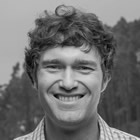 |
Jim Schuck (Columbia University, USA)
P. James Schuck specializes in the study of sensing and engineering phenomena emerging from nanostructures and interfaces, with a focus on developing and applying advanced nano-optical probes and plasmonic devices. With his research he aims to characterize, understand, and control light-matter interactions at the level of single photons and electrons.
He received his PhD in 2003 from Yale University and his BA in 1997 from UC Berkeley
|
 |
 |
 |
 |
 |
Elías Torres Alonso (Graphenea, Spain)
Elías holds a Licenciature in Physics from the University Complutense (Spain), a Master in Nanotechnology and Advanced materials from Lund University (Spain-Sweden), and a PhD in Physics & Engineering from the University of Exeter (UK), where he researched in scalability and integration of graphene and 2D materials and devices into semiconductor workflows, working with light-emitting devices, sensors and wearable electronics. He received a Marie-Curie fellowship to continue his work with 2D materials within Graphenea, where he leads now the Foundry division.
|
 |
 |
 |
 |
 |
Emanuel Tutuc (The University of Texas at Austin, USA)
Dr. Tutuc received his B.S. in Physics from Ecole Normale Supérieure, University of Paris in 1997, his M.S. in Electrical Engineering in 1999 and Ph.D. in Physics from Princeton University 2004. He held research positions at Princeton University and I.B.M. T.J. Watson Research Center from 2004 to 2006. He joined the faculty of The University of Texas at Austin within the Department of Electrical Engineering and the Microelectronics Research Center in the spring of 2007. His current research is centered on the electronic properties of quantum confined systems, novel semiconductor materials and devices, and chemical vapor deposition. Prof. Tutuc has received a DARPA Young Faculty Award in 2008, and a CAREER award from the National Science Foundation in 2009.
|
 |
 |
 |
 |
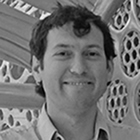 |
Arend Van der Zande (University of Illinois, USA)
Arend M. van der Zande is an Assistant Professor in Mechanical Engineering at University of Illinois at Urbana-Champaign. His research expertise is on engineering novel nanosystems from nanomaterial building blocks. He is a team lead on the Illinois Material Research Science and Engineering Center, exploring active interfaces in highly deformable nanomaterials. Recently, he was awarded the NSF CAREER award, and was added to the Clarivate Analytics list of the world’s most influential researchers in 2018-2019. Previous to becoming faculty, he earned a Ph.D. in Physics from Cornell University in 2011 and a B.S in Physics and Mathematics from University of California, Santa Cruz in 2003. He then became a postdoctoral fellow in the Department of Mechanical Engineering and the Energy Frontier Research Center at Columbia University. He has published 52+ papers with >19,000 citations in journals including Nature, Science, Nature Materials, Advanced Materials, and Nano Letters
|
 |
 |
 |
 |
 |
Robert Wallace (The University of Texas at Dallas, USA)
Robert M. Wallace received his B.S. in Physics and Applied Mathematics in 1982 at the University of Pittsburgh where he also earned his M.S. (1984) and Ph.D. (1988) in Physics. From 1988 to 1990, he was a postdoctoral research associate in the Department of Chemistry at the Pittsburgh Surface Science Center. In 1990, he joined Texas Instruments Central Research Laboratories as a Member of Technical Staff (MTS) in the Materials Characterization Branch of the Materials Science Laboratory, and was elected as a Senior MTS in 1996. He was then appointed in 1997 to manage the Advanced Technology branch in TI’s R&D which focused on advanced device concepts and the associated material integration issues. In 2003, he joined the faculty in the Erik Jonsson School of Engineering and Computer Science at the University of Texas at Dallas as Professor and holds the Erik Jonsson Distinguished Chair in the Department of Materials Science & Engineering. Research interests include the study of surfaces and interfaces, particularly with applications to electronic materials and the resultant devices fabricated from them. These most recently include the study of compound semiconductor systems including arsenides (e.g. InGaAs), nitrides (e.g. GaN), phosphides (e.g. InP), as well as antimondies (e.g. GaSb), and 2D materials such as graphene and transition metal dichalcogenides. He was named Fellow of the AVS in 2007 and an IEEE Fellow in 2009 for his contributions to the field of high-k dielectrics in integrated circuits.
|
 |
 |
 |
 |
 |
Jamie Warner (University of Texas at Austin, USA)
Dr. Jamie H. Warner joined the Walker Department of Mechanical Engineering at The University of Texas at Austin in January 2020 to lead the new Electron Microscopy Facility located in the Engineering Education and Research Center, Texas Materials Institute and the Cockrell School of Engineering. Prior to this he spent 13 years in the Department of Materials at the University of Oxford, where he held the position of Professor of Materials and led the Nanostructured Materials Group. His research focuses on the next generation of nanostructured materials with unique properties that will impact electronic, opto-electronic, and energy applications. The core foundation of his research is on the atomic level structure and dynamics of nanomaterials realized through state-of-the-art aberration-corrected transmission electron microscopy and spectroscopy. A wide range of nanoscale characterization tools (TEM, SEM, AFM, FIB) are also used to probe materials across all dimension scales. New types of nanoscale opto-electronic devices are produced in clean-room nanofabrication facilities, utilizing materials ranging from 2D Crystals (graphene, BN, MoS2, WS2 etc), 1D wires and nanotubes, to 0D quantum dots.
|
 |
 |
 |
 |
 |
Matthew Yankowitz (University of Washington, USA)
Matthew Yankowitz is an Assistant Professor of Physics at the University of Washington, with a joint appointment in the Department of Materials Science and Engineering. He received his B.S. in Physics from Stanford University in 2011, and his PhD in Physics at the University of Arizona in 2015. He performed his postdoctoral work at Columbia University, prior to joining UW in 2019. His research focuses on the investigation and control of topology, correlations, superconductivity and magnetism in 2D van der Waals heterostructures, using a combination of electrical transport, scanning probe microscopy, and high pressure techniques.
|
 |
 |
 |
 |
|
|
|
 |
|
 |
|






